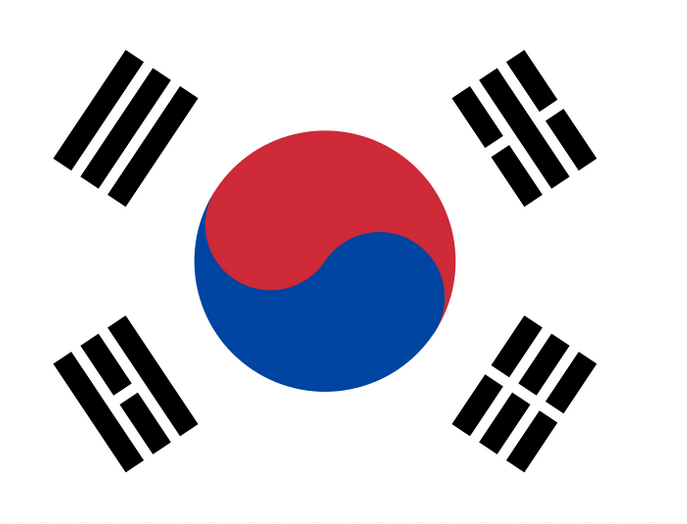By Dr. Leandro Pinto
Lo, on this fateful day, the third of December, in the year of our Lord two thousand and twenty-four, South Korea, that steadfast bastion of liberty in the Asian realm, hath been cast into a tempestuous maelstrom. For Yoon Suk Yeol, a man of firm resolve and tempestuous repute, hath declared martial law, shaking the very foundations of democratic governance.
The Rise of Yoon Suk Yeol: A Modern-Day Caesar?
In days past, Yoon Suk Yeol, erstwhile a prosecutor most unyielding, strode the corridors of justice as though clad in the armor of righteousness. A scourge upon corruption, he laid low the mighty, even those who once shared his cause. Ascending swiftly to the pinnacle of power, he donned the mantle of a ruler with a vision both resolute and contentious, pledging to uphold the fortresses of economic conservatism, safeguard the sanctity of the nation, and vanquish corruption in all its guises.
Yet since his coronation in the year 2022, his reign hath divided the hearts of men. To his loyalists, he is a sentinel of order, a bulwark against forces foreign and domestic. But to his detractors, he is an authoritarian specter, cloaking oppression beneath the guise of national security, stifling dissent and fettering freedoms.
The Storm of Crises and the Justification for Martial Law
Amidst a convergence of calamities — a grievous strike of physicians, whispers of opposition meddling within the machinery of governance, and the ever-looming specter of North Korea — Yoon proclaimed martial law, alleging the nation imperiled by “subversive forces” and “agents aligned with Pyongyang’s regime.” He laid blame upon the Democratic Party, accusing it of orchestrating disorder by thwarting vital budgets and pursuing impeachments against the judiciary’s stalwarts.
The Unanimity of Dissent and the Outcry Beyond Borders
Though Yoon hath sought unity through his decree, he hath instead garnered a peculiar consensus — one of opposition. Within his own Party of Power, dissent rises. The illustrious Han Dong-hoon, with words sharp as a blade, condemned the proclamation as “untimely and ill-conceived.” The opposition, emboldened, did decry the decree as “an affront to constitutional sanctity,” beseeching the people to stand in peaceful defiance.
Across the seas, the proclamation’s echoes resounded. From the noble courts of Europe to the vigilant chambers of the United States, came lamentations and warnings. “Profoundly troubling,” declared they, as groups such as Amnesty International and Human Rights Watch raised their voices against the specter of democratic regression, imploring South Korea to restore order born not of fear but of justice.
A Boon for the Adversaries: North Korea, China, and Russia
In this turmoil, opportunists abroad see a gilded prize. North Korea, forsooth, doth seize the moment to bolster its autocratic credence, portraying South Korea as a realm of discord and frailty. The propaganda mills of Pyongyang churn, extolling their despotic rule as stability’s sole custodian.
Meanwhile, the dragon of the East, China, finds cause to rejoice. The upheaval in Seoul provides fodder to its narrative against the West, a claim that democracy is ill-suited for Asia’s unique soil. The eagle’s presence on the Korean Peninsula is questioned anew, its very footing challenged by Beijing’s strategic designs.
Russia, too, circles like a wolf, eager to exploit the fracture. Isolated by the West’s scorn due to the Ukrainian conflict, Moscow seeks solace and alliance with Pyongyang and Beijing, wielding the South Korean crisis as a weapon to weaken Washington’s dominion in the Pacific expanse.
A Reflection Upon Democracy’s Fragility
South Korea, a nation whose democratic spirit emerged triumphant from the crucible of authoritarian rule in 1987, now finds its legacy tested. The invocation of martial law awakens specters of yore, none more haunting than the Gwangju Massacre of 1980, when innocents were laid low by military wrath under similar pretenses.
This martial decree, born of exigency — or so it is proclaimed — doth challenge the pillars upon which democracy stands: the separation of powers, the freedom of the press, and the sacred right to dissent. It calls into question not merely the proportionality of the act but the very integrity of its intent.
A Clarion Call to All Democracies
This tale of martial law in South Korea is no mere domestic saga; it is a harbinger to all nations that uphold the banner of liberty. Elected sovereigns must tread with care, for the trust of their subjects is as fragile as spun glass. Actions tinged with autocracy may shatter that trust, leaving naught but shards of legitimacy.
Let South Korea’s leaders take heed and reaffirm their covenant with the people, fortifying the bulwarks of democracy against the tide of authoritarian temptation. Else, they risk becoming but pawns in a grander game, where North Korea, China, and Russia emerge as the victors.
And so, may this chapter be a catalyst for renewal, a reminder that democracy’s strength lies not in its perfection but in its resilience, standing steadfast even amidst the fiercest tempests.
About the Author
Dr. Leandro Pinto is a senior attorney at Dr. Leandro Pinto Law Firm, specializing in international law with an emphasis on banking and energy regulations. His extensive background in banking law, combined with his mastery of cryptographic algorithms, positions him as one of the foremost experts in global financial negotiations. Dr. Leandro is the creator of the Encrypted Infinite Point Algorithm (EIPA), a revolutionary methodology for constructing tokens and other cryptography-based technologies. His work with advanced algorithms has enabled the optimization of financial systems and smart contracts, providing innovative solutions for the energy and technology sectors.
His vast experience in the international financial and legal markets gives him a unique perspective on the geopolitical and economic implications of innovations in the energy sector. With a proven track record of success in international transactions, his expertise ensures that clients are always at the forefront of global operations. For more information, visit www.leandropinto.us.


